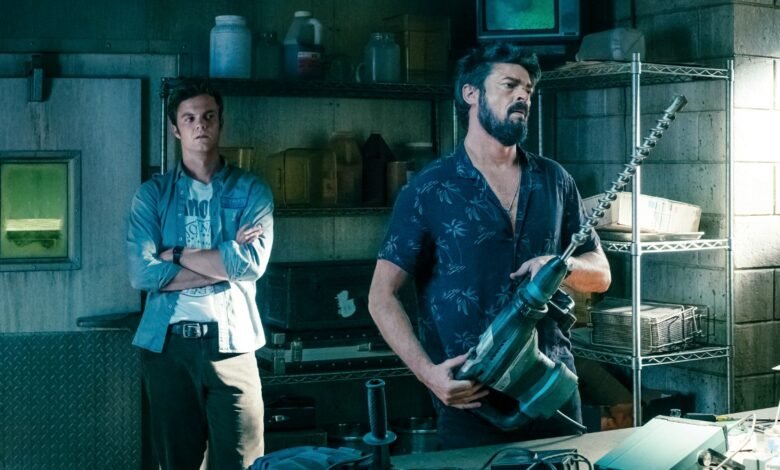
In a landscape once dominated by clear-cut heroes and villains, morally ambiguous protagonists have captured our imaginations, drawing us into murky worlds where right and wrong blur into a tapestry of grey.
Enter the anti-hero – a perplexing concoction of charm, flaws, and questionable life choices that has turned the good vs. evil narrative into a full-blown identity crisis.
From the charismatic yet sinister Frank Underwood in House of Cards to the gritty and unpredictable Walter White in Breaking Bad, these characters challenge our empathy and understanding, provoking discussions about the duality of human behavior.
So grab your popcorn and your moral relativism as we take a joyfully bumpy detour through the world of TV’s most endearing scoundrels – just don’t be surprised if you find yourself rooting for the bad guys along the way.
TV SHOWS ABOUT ANTI-HEROES WITH SUPERPOWERS
The Boys, Amazon Prime Video (2019 – present)

A popular trend in the anti-hero TV show space is to upend the superhero trope and explore what happens when an unchecked ego is given nearly god-like powers.
The Boys is set in a world where superheroes are revered as celebrities, however, underneath the glitz is a much darker underbelly of morally compromised individuals.
Enter The Boys, a group led by the no-nonsense Billy Butcher, out to take down these corrupt superheroes who use their powers for personal gain and indulge in some seriously messed-up behavior.
From a super-speedster who accidentally turns people into a red mist to a Superman-esque figure with a not-so-heroic agenda, the show dishes out shocking plot twists faster than a speeding bullet.
The characters are flawed, gritty, and far from your typical caped crusaders. With dark humor, explosive action, and jaw-dropping revelations, the show keeps you glued to your screen as you root for the anti-heroes to give the supes a taste of their own medicine.
The Umbrella Academy, Netflix (2019 – present)

Based on a comic book created by Gerard Way, The Umbrella Academy revolves around a dysfunctional family of adopted siblings, all born on the same day to mothers who weren’t pregnant that morning – and they all have unique superpowers.
These not-so-conventional heroes were raised by an eccentric billionaire who shaped them into a crime-fighting team called The Umbrella Academy. But as they grow up, the siblings drift apart, only to reunite years later when their father’s death brings them back home.
Each sibling possesses a distinctive power, from time-traveling and communicating with the dead to altering reality itself. But what truly sets the show apart is its offbeat humor and exploration of personal struggles amidst the chaos.
With a mix of heartwarming moments and oddball characters, the show delves into the anti-heroic nature of its protagonists. They’re far from the flawless icons we often associate with superheroes, but their quirks and flaws make them relatable and endearing – who could ever forget their iconic dance scene in the first episode of the show?
Lucifer, Netflix (2016 – 2021)
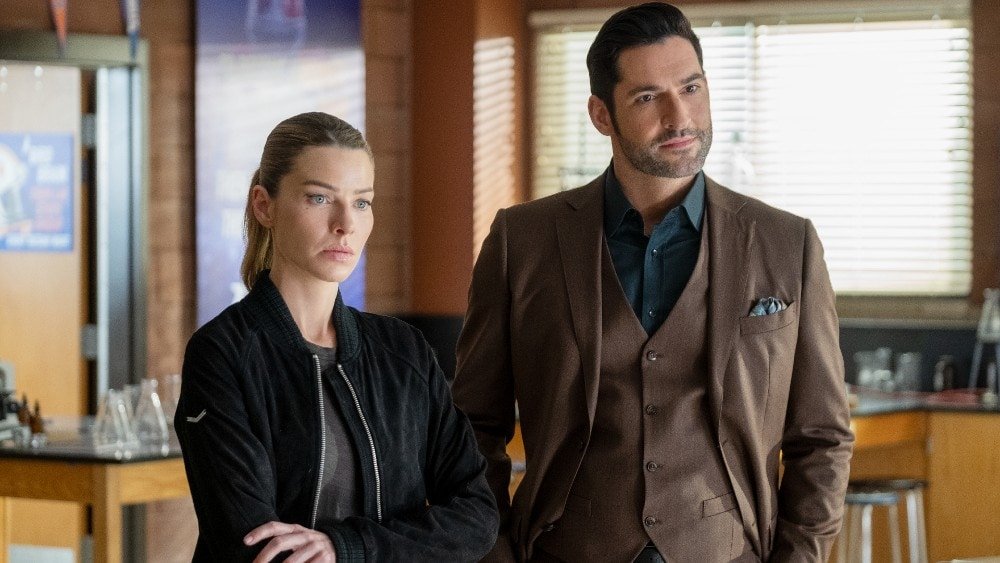
Adapted from a character originally created by Neil Gaiman for the comic book The Sandman, we follow Lucifer Morningstar, who grows tired of his monotonous life ruling over Hell and decides to take a vacation in Los Angeles.
Far from the horned villain we expect, Lucifer is portrayed as a suave and charming character with a fondness for indulgence, fine things, and solving crimes.
In a witty and intriguing narrative twist, Lucifer becomes a civilian consultant for the LAPD, using his ability to draw out people’s deepest desires and secrets to help solve murder cases.
His dynamic with Detective Chloe Decker adds a layer of chemistry and mystery to the show as Lucifer grapples with his newfound fascination with humanity and his own complicated past.
He’s not your typical heroic figure, but his devilish charisma makes him an intriguing and compelling protagonist. As the show navigates the blurred lines between heaven, hell, and everything in between, Lucifer invites viewers to question their own preconceptions and ponder the nature of redemption, all while enjoying a devilishly good time.
Misfits, E4 (2009 – 2013)
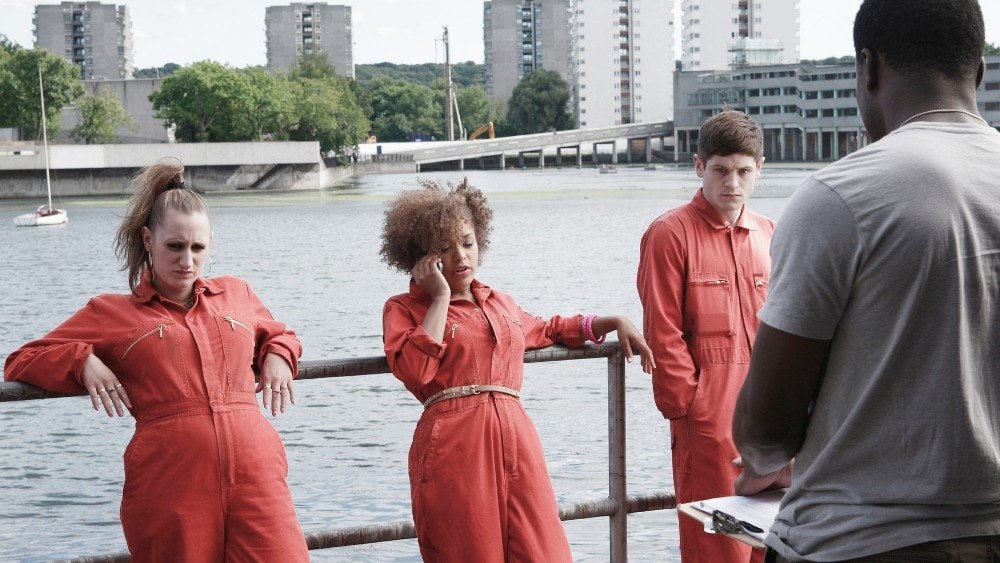
In this uniquely edgy TV series, we take a gritty look at the superhero genre.
Set against the backdrop of a community service program in London, the show centers around a group of young offenders who suddenly acquire supernatural abilities during an electrical storm.
Far from the classic heroes we’re used to, these characters are no role models. With powers ranging from mind-reading and invisibility to time manipulation, the Misfits grapple with their newfound abilities while dealing with their personal issues and the repercussions of their criminal pasts.
The show’s anti-heroic nature shines as the characters navigate the darker side of their powers. Rather than fighting villains, they often find themselves in morally ambiguous situations, sometimes using their abilities for personal gain or to cover up their mistakes.
The result is a refreshingly raw take on the superhero narrative, showing that even superpowers can’t fix the messiness of life.
I Am Not Okay With This, Netflix (2020)
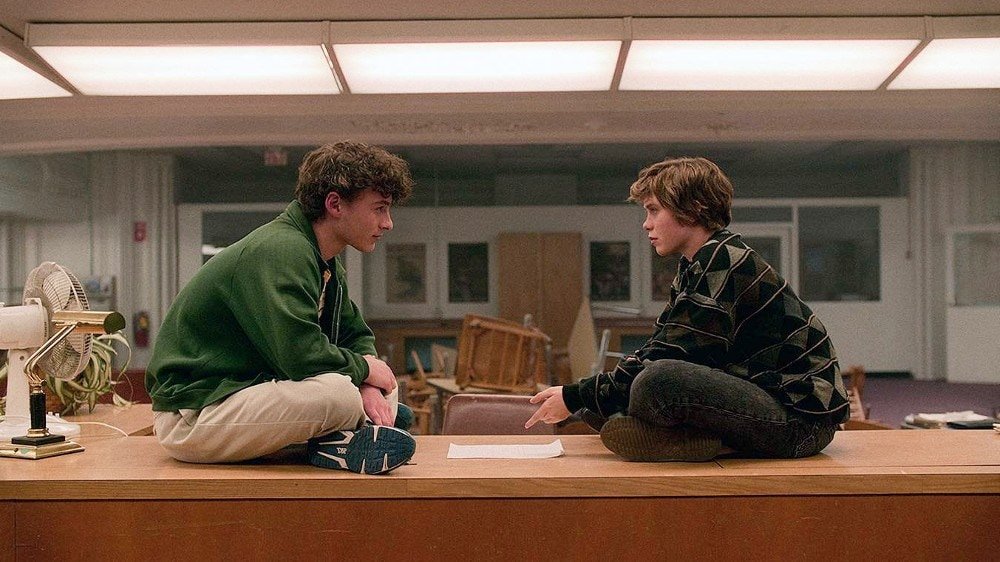
Meet Sydney Novak, a teenage girl dealing with the challenges of growing up while grappling with the sudden emergence of mysterious telekinetic abilities.
In a departure from traditional superhero narratives, I Am Not Okay With This embraces an anti-hero approach.
Sydney isn’t your typical superhero; her powers are as unpredictable as her emotions. Her internal battles are as captivating as the external ones, drawing viewers into a world where the line between right and wrong blurs.
With a blend of dark humor, poignant moments, and a touch of supernatural intrigue, the show delves into themes of identity, acceptance, and the universal struggle to find one’s place in the world.
The show’s darker undertones add depth to the narrative, while its candid depiction of mental health issues resonates with authenticity.
As Sydney grapples with the consequences of her powers, the lines between right and wrong blur, echoing the nuanced choices that adolescence often brings.
Legends of Tomorrow, The CW (2016 – 2022)

A spin-off from Arrow, Legends of Tomorrow is a time-traveling, action-packed TV series that assembles a motley crew of heroes and anti-heroes who join forces to protect the timeline from aberrations and villainous forces.
Unlike the more conventional heroes in the Arrowverse, the characters in this show are a bunch of misfits and oddballs. The team includes historical figures, reformed villains, and unexpected individuals with unique abilities.
With their own quirks and flaws, they bring a refreshing sense of humor and self-awareness to their crime-fighting escapades.
The show’s anti-heroic flavor shines through in its embrace of unconventional tactics and morally ambiguous decisions. The Legends often find themselves in absurd situations that require creative problem-solving and a willingness to bend the rules of time.
Time-travel mishaps, interdimensional escapades, and unexpected character arcs keep the audience engaged. And by celebrating the unconventional, the show challenges the notion of heroism while delivering a dose of action, comedy, and heartwarming moments that make it a true standout in the superhero TV landscape.
Jessica Jones, Netflix (2015 – 2019)
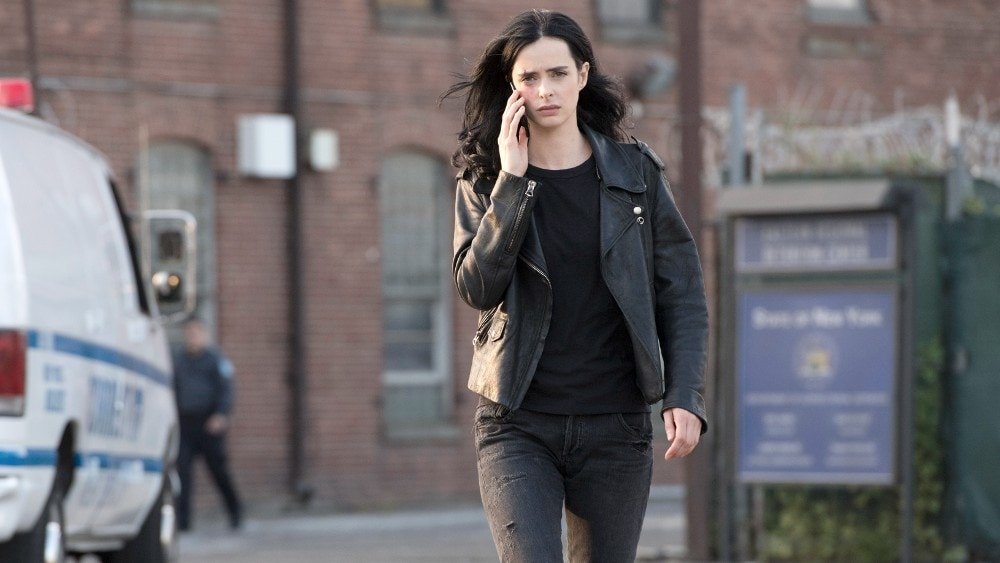
This gritty and psychologically intense TV series stands as a testament to the complexity of the anti-hero.
Based on a Marvel Comics character, the show follows Jessica Jones, a private investigator with a traumatic past. She possesses superhuman strength but is haunted by her experiences as a survivor of mind control and abuse.
Jessica is a character who embodies the anti-hero archetype, often straddling the line between heroism and self-destruction.
Instead of donning a cape and mask, she navigates the mean streets of New York City in leather jackets and combat boots, showcasing a raw and unfiltered approach to heroism.
The show presents a layered portrayal of its characters, delving into their motivations, fears, and desires. With its noir-inspired atmosphere and intricate storytelling, it captures the essence of a damaged anti-hero who refuses to be defined by her past.
The Tick, Amazon Prime Video (2016 – 2019)

Now, for a much lighter take, we enter the world of The Tick, where the superhero genre is lampooned and celebrated for just how absurd it is.
Based on the comic book character of the same name, the show introduces us to the eccentric and blue-skinned superhero known as The Tick, along with his more grounded sidekick, Arthur.
Together, they form an unlikely crime-fighting duo in a world where superheroes and villains are anything but ordinary.
Our protagonist exudes an unwavering optimism and childlike enthusiasm, often spouting nonsensical catchphrases and embracing his role as a protector with unbridled glee.
While he might seem like a straightforward hero, his anti-hero nature lies in his sheer obliviousness to the seriousness of the world around him.
This obliviousness extends to the show’s exploration of the superhero tropes, highlighting the absurdity of costume-clad individuals trying to make a difference in a reality that’s as chaotic as it is colorful.
The characters, while extraordinary, are endearingly flawed, resulting in laugh-out-loud moments that subvert our expectations.
Preacher, AMC (2016 – 2019)

Darkly riveting, Preacher is based on the comic book series by Garth Ennis and Steve Dillon and follows Jesse Custer, a small-town preacher with a tumultuous past and an unexpected power – the ability to command people to do whatever he says.
As he grapples with his newfound power, he embarks on a journey to find God, who has abandoned heaven.
Alongside his tough-as-nails ex-girlfriend Tulip and a hard-drinking Irish vampire named Cassidy, Jesse traverses a landscape filled with supernatural entities, religious zealots, and enigmatic forces.
However, none of these characters are pillars of morality, and their anti-hero status is firmly rooted in the show’s unapologetic and irreverent tone as we see them struggle with inner demons, hedonism, and the nature of good and evil.
With its blend of dark humor, visceral action, and thought-provoking themes, Preacher takes viewers on a rollercoaster ride through a world where the supernatural and the mundane collide.
The show’s gritty aesthetic and morally ambiguous characters provide a fresh perspective on heroism, allowing viewers to question the motivations and choices of its protagonists.
Peacemaker, HBO Max (2022 – present)
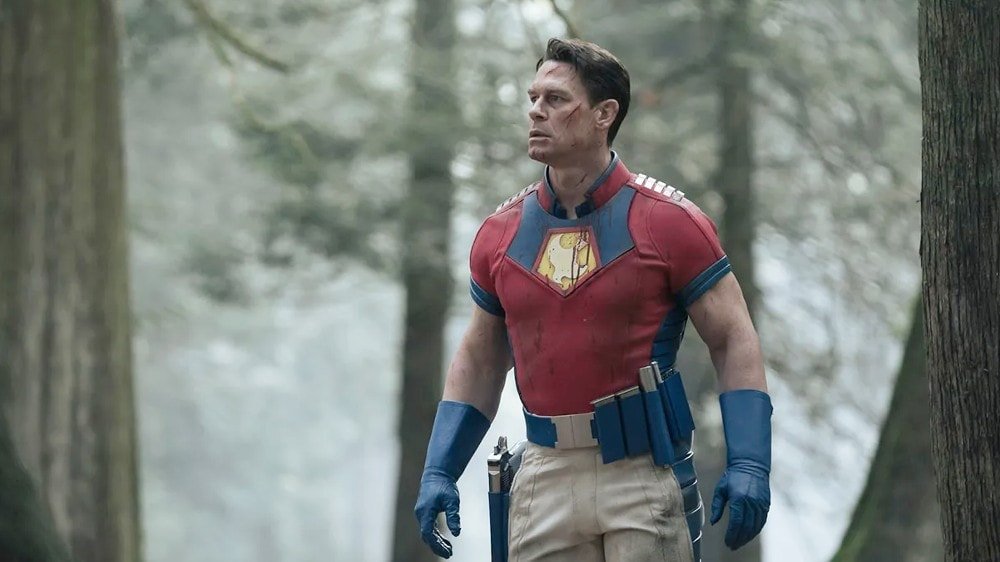
As a spin-off from The Suicide Squad films, Peacemaker centers around the character of Peacemaker, a vigilante with an unshakable commitment to achieving peace, no matter the chaotic methods he employs.
Much in the same vein as The Boys, the show investigates the premise that not all people with superpowers have good hearts.
Armed with an unwavering commitment to his twisted version of justice, Peacemaker is a walking contradiction – a ruthless killer on a mission to achieve world peace. The show follows his chaotic escapades as he takes on a new wave of villains and battles inner demons.
Set against a backdrop of explosions, quirky characters, and morally murky situations, the show embraces the anti-hero’s journey with a healthy dose of self-awareness.
As a flawed and unpredictable anti-hero, Peacemaker’s journey is filled with unexpected twists, questionable decisions, and a healthy dose of self-discovery.
The show fearlessly tackles the absurdity of its own premise while providing a platform for exploration of the complexities of heroism. With a cast of eccentric characters, including Peacemaker’s motley crew of allies and adversaries, the series navigates the fine line between comedy and drama.
Invincible, Amazon Prime Video (2021 – present)
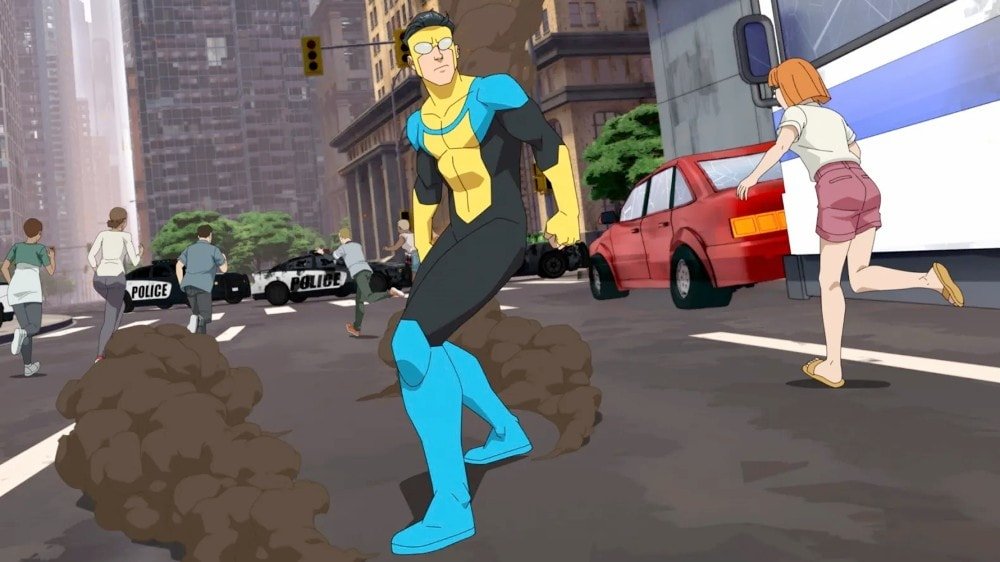
Based on the comic book series by Robert Kirkman, Invincible follows Mark Grayson, a seemingly ordinary teenager who discovers that he’s inherited superpowers from his father, Omni-Man, a revered superhero.
As he embraces his new powers, the animated show quickly takes a dark turn, unraveling a shocking twist that shatters the illusion of heroism and plunges Mark into a world of secrets, violence, and moral dilemmas.
The series explores the moral grey areas of superheroism as characters make choices that challenge traditional heroic narratives.
The show subverts expectations as the line between right and wrong is blurred, and we learn that his heroic father may not be all that heroic after all.
As Mark navigates his dual life, the show challenges traditional notions of heroism by exposing the complex, often grey nature of its characters’ actions. Friendships are tested, alliances shift, and loyalties waver, creating a rollercoaster of suspenseful plot developments.
Loki, Disney+ (2021 – present)
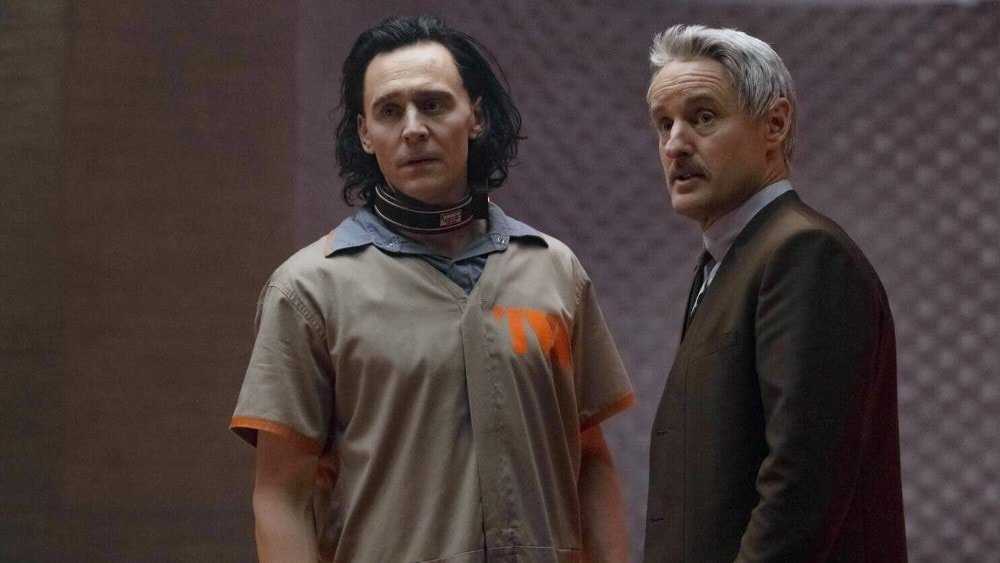
Everyone’s favorite trickster God leaps from the big screen to the small screen in Loki, as we follow the mischievous and charismatic dirty right after he nabs the Tesseract in Avengers: Endgame.
This lands him right in the crosshairs of TVA, an organization that polices the timeline under the guise of ultimate authority, making them infinitely powerful.
Their job is to prune bad timelines, and it just so happens that our rascal created one and is in line for a pruning – until he decides to try and change that.
At the heart of the show, we find that the anti-hero theme crops up through Loki’s unpredictability – he’s both the mischief-maker and the one being played.
As he navigates his way through time-travel paradoxes and confronts alternate versions of himself, the series explores the evolution of his character from a self-serving villain to a reluctant agent of change.
TV SERIES ABOUT ANTI-HEROES WITHOUT SUPERPOWERS
Breaking Bad, AMC (2008 – 2013)
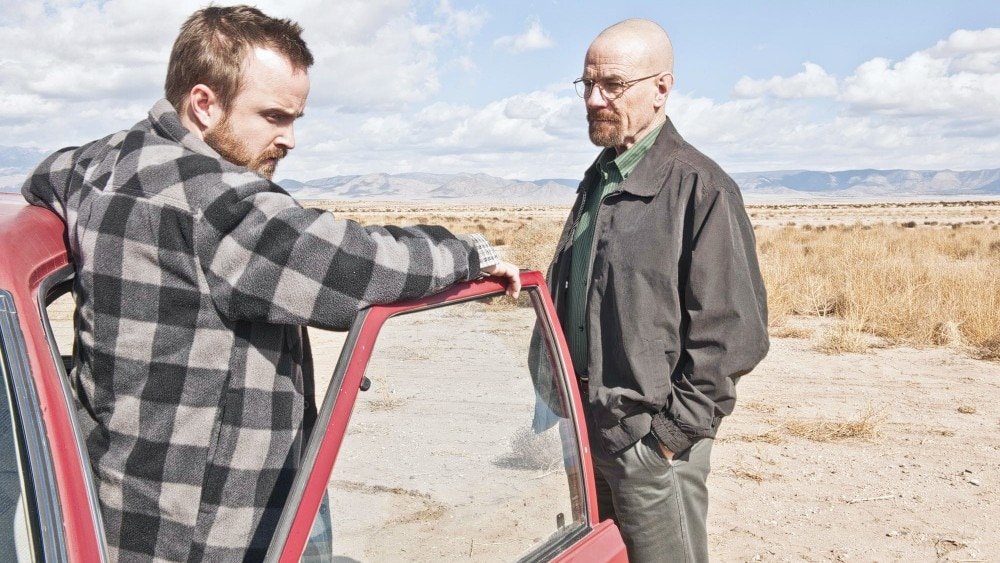
Widely hailed as one of the greatest TV shows of all time, Breaking Bad takes us on the journey of Walter White, from mild-mannered high school chemistry teacher to morally complex and ruthless anti-hero.
Faced with a terminal cancer diagnosis and the financial burden it brings, Walter partners with a former student, Jesse Pinkman, to cook and sell methamphetamine.
The show masterfully delves into Walter’s descent from an underappreciated teacher to a criminal mastermind known as Heisenberg.
With each decision, his character evolves, blurring the lines between good and evil. As he becomes deeply entangled in the criminal underworld, his relationships with his family, friends, and even himself start to unravel.
While he begins as somewhat of a relatable through desperate character, his arc takes him to unfathomably dark places, taking him from an anti-hero breaking the law for his family to a ruthless crime lord driven by pride and the need for control.
Better Call Saul, AMC (2015 – 2022)
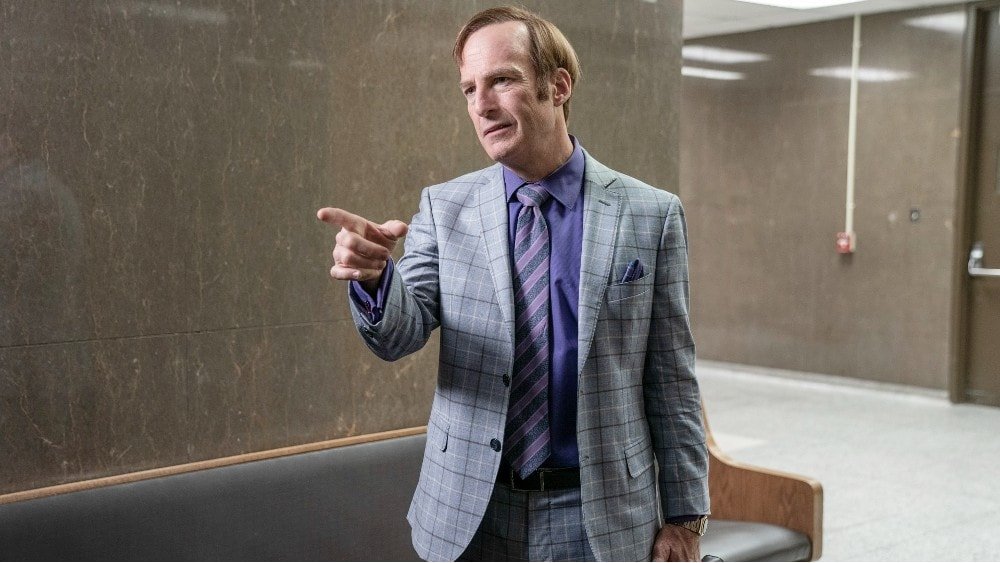
Serving as a prequel to Breaking Bad mentioned above, in Better Call Saul, we follow the transformation of James McGill, a small-time lawyer with a colorful personality, into the morally flexible and ethically ambiguous Saul Goodman.
His journey from struggling public defender to the morally flexible lawyer known for his flashy billboards is captivating, and along the way, we explore his relationships with both his older brother, Chuck, and his love interest, Kim Wexler, as well as his interactions with various colorful characters from the Breaking Bad universe.
The series excels at delving into the anti-hero nature of its characters. Jimmy’s charm and wit are juxtaposed with his willingness to bend the rules and manipulate situations for his own gain.
As the show unfolds, it offers insights into the moral grey areas that lead to the creation of Saul Goodman, the flashy lawyer who’s not averse to representing criminals and bending the law to his advantage.
The Sopranos, HBO (1999 – 2007)

Set against the backdrop of a New Jersey mob family, The Sopranos follows Tony Soprano as he balances the demands of his criminal activities with the challenges of family life.
The series challenges traditional notions of heroism by presenting a protagonist who’s both a family man and a ruthless criminal, often blurring the lines between his legitimate and criminal worlds.
One of the show’s core strengths is its portrayal of Tony’s internal battles. He grapples with a multitude of issues, including his own morality, his psychological well-being, and the consequences of his actions.
His sessions with his therapist, Dr. Jennifer Melfi, provide a window into his complex mind, highlighting the psychological toll of his lifestyle.
With its realistic portrayals of violence, betrayal, and power struggles, the show doesn’t shy away from the darker aspects of its characters’ lives. It challenges viewers to confront their own complicity in sympathizing with characters who engage in morally reprehensible activities.
Ozark, Netflix (2017 – 2022)

This gripping and intense show delves deep into the world of money laundering and the moral compromises that may come with trying to escape to a better life.
The show follows the Byrde family as they become entangled in the criminal underbelly after relocating to the Ozarks in Missouri to launder money for a powerful Mexican drug cartel.
The series expertly explores the anti-hero nature of its characters, particularly the patriarch, Marty Byrde.
As an unassuming financial planner turned money launderer, Marty must navigate the treacherous landscape of drug money while keeping his family safe. His choices are often driven by necessity and desperation, showcasing the depths to which he’s willing to go for survival.
As the Byrdes weave through danger and deceit, the show urges us to think about the choices we make when push comes to shove. It’s a gritty exploration of anti-heroic territory that reminds us that survival isn’t always clean and heroes aren’t always shining.
Dexter, Showtime (2006 – 2013)

This suspenseful fan favorite dives headfirst into the gripping world of a forensic expert who moonlights as a vigilante serial killer.
The show follows Dexter Morgan, a seemingly ordinary blood-spatter analyst for the Miami Metro Police Department. However, by night, he channels his darker impulses by targeting criminals who have escaped justice.
Dexter’s chillingly meticulous methods are rooted in his own twisted code of ethics, which he follows to the letter.
The series takes viewers on a rollercoaster ride through Dexter’s mind as he navigates the dual life of a respected member of society and a remorseless murderer. And yet, as viewers, we can’t help but root for this darkly charming anti-hero.
Our protagonist’s internal struggles and his quest for self-discovery make for a gripping narrative that’s as thought-provoking as it is suspenseful.
You, Netflix (2019 – present)
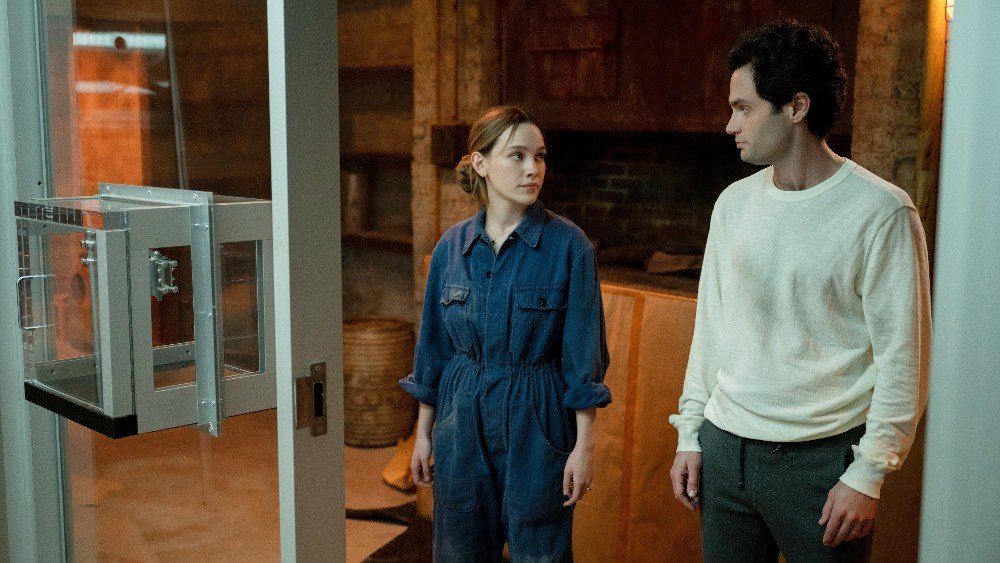
Let’s step into the macabre world of Joe Goldberg, a seemingly ordinary bookstore manager who becomes increasingly infatuated with the women he encounters – to the point of obsession.
His initial charm and intelligence quickly give way to a disturbing pattern of stalking, manipulation, and even murder. The series delves into his twisted rationalizations, exposing the dangerous lengths he’ll go to in order to possess those he’s fixated on.
Set against the backdrop of New York City, the show masterfully blends romance, psychological suspense, and dark drama. Through Joe’s perspective, we’re granted an unsettling insight into his thought process as he justifies his actions with twisted logic that blurs the lines between love and control.
It’s a psychological thriller that shines a light on the unsettling potential for anti-heroic behavior, reminding us that heroes can come in twisted forms and that sometimes the most charming faces hide the darkest intentions.
House of Cards, Netflix (2013 – 2018)
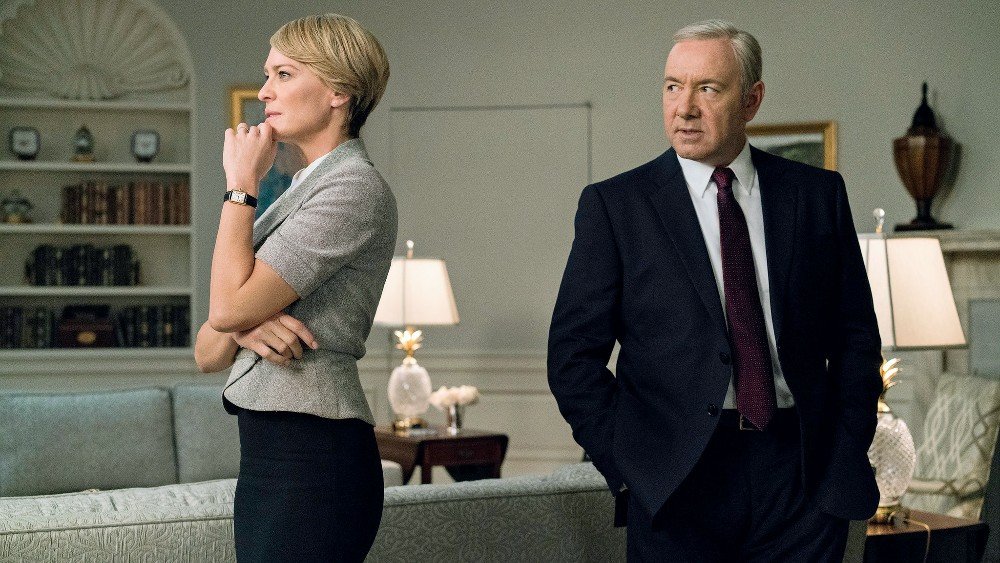
Now we head into the Machiavellian world of Frank Underwood, a cunning and power-hungry politician who stops at nothing to climb the ranks of Washington, D.C.
Set against the backdrop of the political landscape, the show masterfully portrays the high-stakes world of Washington politics.
Frank’s maneuvers and strategic alliances create an intricate web of power dynamics and shifting loyalties that keep viewers hooked.
The show challenges our perceptions of heroism as we witness the lengths Frank is willing to go to achieve his aims.
His calculated and ruthless actions are driven by his insatiable thirst for power, even if it means manipulating, betraying, and destroying those who stand in his way. The show artfully exposes the depths of his ambition and the morally murky decisions he makes to achieve his goals.
Rick And Morty, Adult Swim (2013 – present)
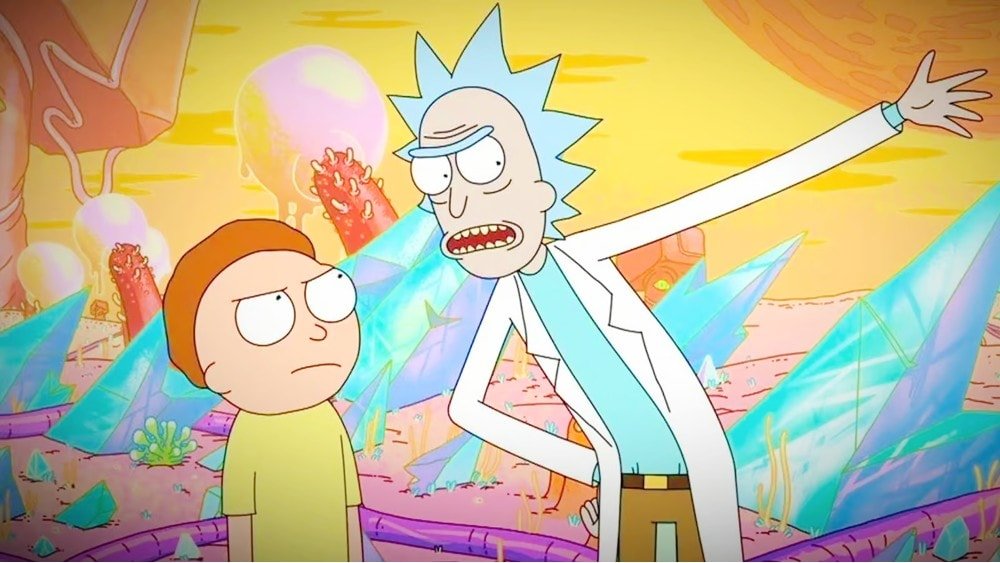
This wildly chaotic TV show is all about the sci-fi adventures of a mad scientist grandpa, Rick, and his not-so-bright grandson, Morty.
Created by Dan Harmon and Justin Roiland, the show is a crazy ride through different dimensions and alternate realities.
The heart of Rick and Morty lies in its exploration of the dynamic between its two main characters.
Rick is this genius scientist who’s also pretty messed up, and Morty’s the awkward teen who gets dragged along for the ride. Their escapades are a mix of mind-bending sci-fi concepts and some downright bizarre situations.
However, Rick, for all his genius, is a deeply flawed anti-hero – brilliant and multifaceted, he often operates outside the boundaries of traditional heroism. This complexity and willingness to explore the darker aspects of his personality set him apart as a character who defies conventional hero archetypes.
The Punisher, Netflix (2017 – 2019)
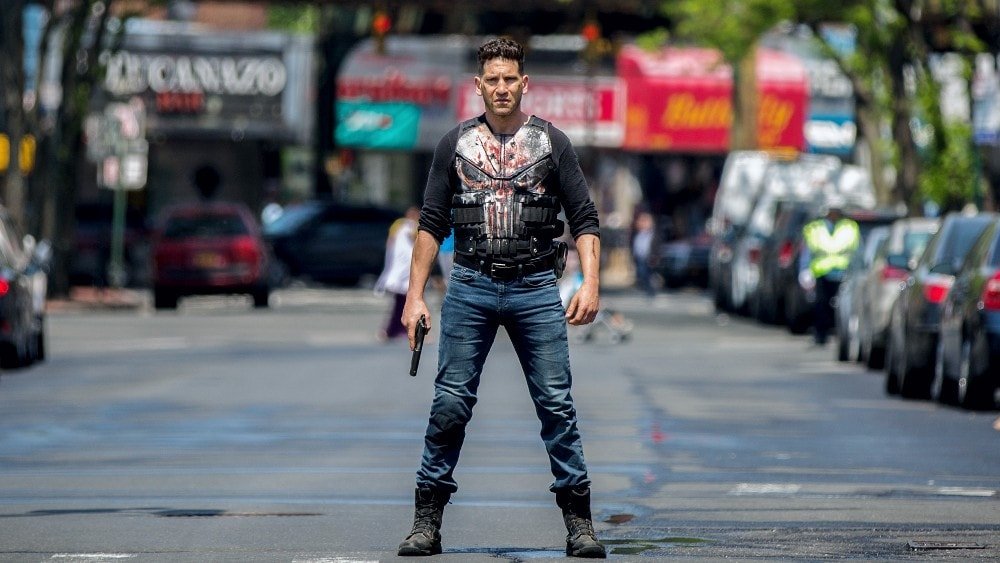
Meet one of the most heralded anti-heroes of all, Frank Castle, a former Marine turned vigilante driven by a relentless pursuit of vengeance against criminals who took his family from him.
The series doesn’t shy away from portraying the brutal violence and moral ambiguity that characterize his actions.
Set against a backdrop of crime and corruption, the show delves into Castle’s complex psyche and his moral struggles.
As he crosses lines and takes on adversaries, including government conspiracies and organized crime, viewers witness the blurred boundaries between heroism and vigilantism.
Through his complex motivations, questionable tactics, and inner turmoil, the Punisher embodies the essence of the anti-hero.
The Wire, HBO (2002 – 2008)
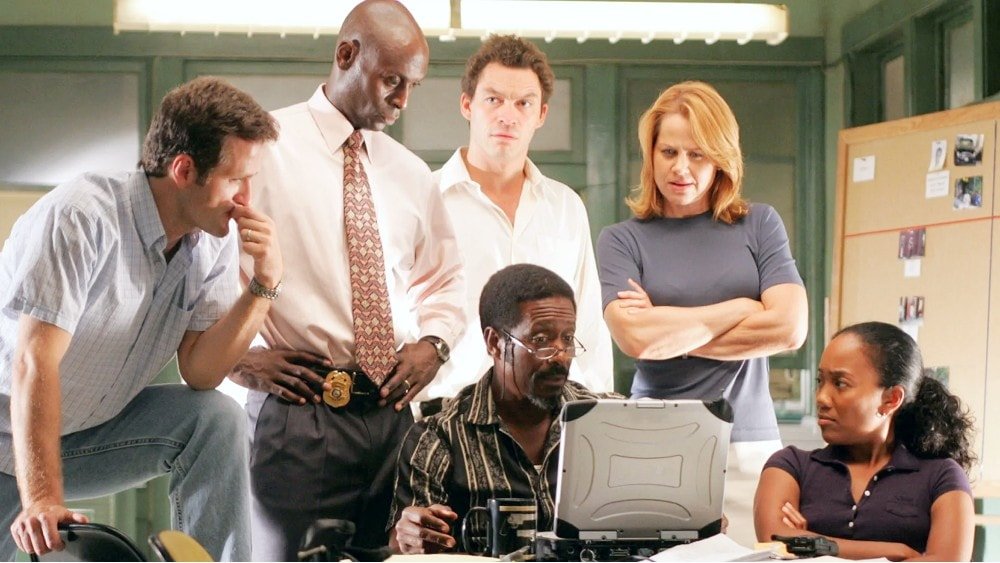
The Wire is set against the backdrop of Baltimore’s urban landscape and expertly weaves together the interconnected lives of its characters and institutions.
By highlighting the failures and limitations of various institutions, the show challenges conventional notions of heroism and villainy, emphasizing the systemic factors that contribute to the character’s actions.
The show explores the lives of its characters from law enforcement, drug trade, education, politics, and media, highlighting the social and systemic challenges they face. As detectives attempt to dismantle drug rings and solve crimes, they confront bureaucratic obstacles.
Meanwhile, drug dealers navigate their own struggles for power and survival.
The series also delves into the shortcomings of the education system, the political landscape, and the media’s role in shaping perceptions.
Peaky Blinders, BBC Two (2013 – 2022)

Everyone loves a gangster with a heart, and in Peaky Blinders, we see the rise of the Shelby crime family in post-World War I Birmingham, England, from street-level gangsters to powerful players in organized crime.
At the heart of it is the exploration of its characters’ complex and morally grey nature.
Thomas Shelby, the family’s enigmatic leader, is driven by a relentless ambition that often leads him to make ethically questionable decisions, though he remains a beloved anti-hero that viewers want to see succeed.
Set against the backdrop of a society reeling from the aftermath of the war, the series captures the gritty atmosphere of Birmingham and the multifaceted challenges faced by its characters.
It delves into the Shelby family’s intricate relationships, rivalries, and the personal sacrifices they make in their pursuit of dominance.
Weeds, Showtime (2005 – 2012)
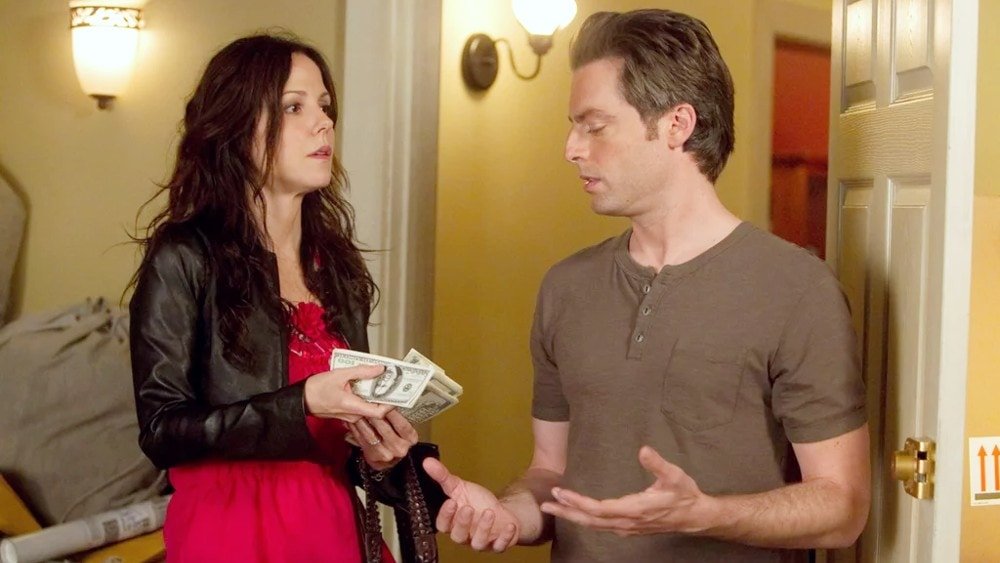
Anti-heroes also lurk in leafy suburbs, and in Weeds, we meet Nancy Botwin, a widowed housewife turned marijuana dealer.
The show explores the unconventional choices and morally complex decisions made by its characters. Nancy’s decision to enter the drug trade is driven by financial necessity, leading her down a path of illicit activities and morally grey areas as she navigates the challenges of maintaining her family’s lifestyle.
Set against the backdrop of suburbia, the series combines dark comedy with drama to highlight the contrasts between seemingly normal life and the criminal activities Nancy becomes involved in.
As Nancy’s actions become increasingly risky and her world more complex, the series delves into the complexity of her character and the blurred lines between thinking you’re the good guy and anti-heroism in a world where survival sometimes requires bending or breaking the rules.
Sons Of Anarchy, FX (2008 – 2014)

Sons of Anarchy is a compelling TV series that delves into the tumultuous world of an outlaw motorcycle club known as the Sons of Anarchy Motorcycle Club Redwood Original (SAMCRO).
The show follows the lives of its members as they navigate a dangerous blend of crime, loyalty, and personal motivations.
When it comes to anti-heroes, the show pays particular attention to Jax Teller, the vice president of the club.
Jax is driven by a desire to transform the club’s criminal activities into something more legitimate for the sake of his family’s future. However, his actions often involve morally ambiguous choices and violent confrontations.
Set against the backdrop of the motorcycle club lifestyle, the series immerses viewers in the world of SAMCRO, exploring the complexities of brotherhood, honor, and rivalry.
The Blacklist, NBC (2013 – 2023)

Meet the enigmatic Raymond Red Reddington; a former government agent turned high-profile criminal who surrenders to the FBI and ultimately builds a partnership with them to bring down dangerous criminals on his blacklist while also pursuing his own hidden agenda.
Amidst a backdrop of criminal operations and espionage, the series unravels the dynamic interplay between Red, the FBI, and the individuals on his blacklist.
It deftly navigates themes of trust, manipulation, and the moral ambiguity that characterizes Red’s intentions and tips the hat to the classic anti-hero trope.
With Red’s dual identity as both a helper and a manipulator, the show challenges viewers to consider the complexities of heroism and the shades of grey that can exist within characters.
Nurse Jackie, Showtime (2009 – 2015)

Addiction can turn even the most moral character into a shadowy figure that twists the rules to fit their narrative.
Meet Jackie Peyton, a wonderfully dedicated, sassy, and skilled nurse who also battles addiction.
Set in the chaotic environment of a busy hospital, the series offers a realistic portrayal of the challenges faced by medical professionals.
Our protagonist’s actions often deviate from traditional heroic ideals due to her battle with substance abuse and her penchant for bending the rules to suit her needs.
The series invites viewers to delve into Jackie’s mindset, understanding her motivations and the complexities of her choices.
Through its portrayal of the duality of her character – a caring nurse with a darker side – the show offers a thought-provoking reflection on the multifaceted nature of what it means to be a flawed human.
24, Fox (2001 – 2010)
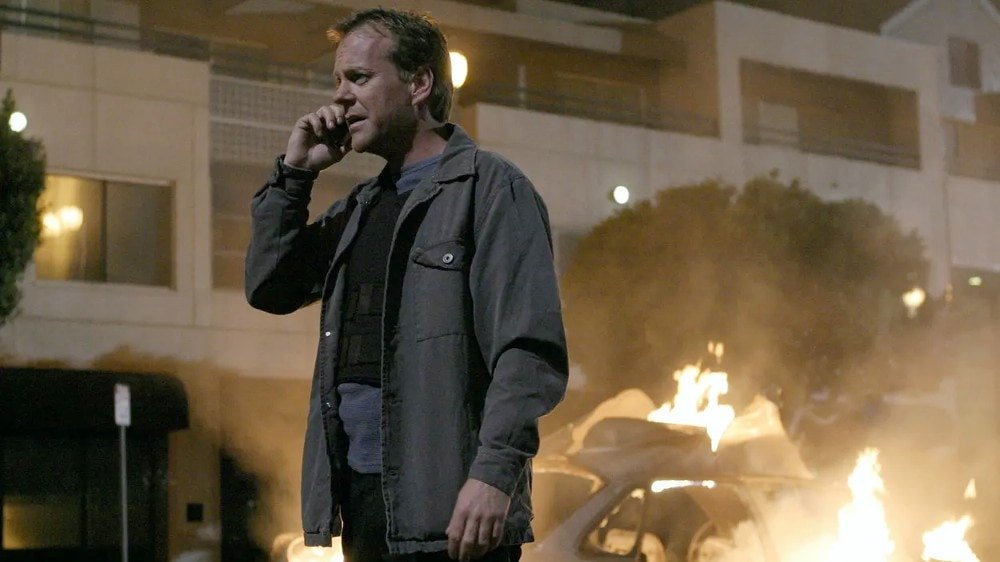
High-octane and a full adrenaline ride, 24 is 24 episodes that span exactly 24 hours, offering a day-in-the-life perspective of counterterrorism agent Jack Bauer – an anti-hero who, despite his dedication to his job, is not afraid to involve extreme measures and morally grey decisions.
His willingness to bend or break the rules, including using torture, challenges traditional heroic norms.
Set in Los Angeles and later Washington, D.C., the series offers an inside look at the world of counterterrorism, intelligence, and government operations.
Each season presents a new threat that requires Jack to navigate a web of conspiracies, double-crosses, and personal sacrifices.
As Jack’s actions unfold in real time, viewers are drawn into a fast-paced narrative filled with suspense, action, and unexpected plot twists.
The series examines the psychological toll on Jack as he grapples with the impact of his decisions on his personal life and relationships. The show’s exploration of morality is embedded in the choices Jack makes in the face of overwhelming odds.
The Walking Dead, AMC (2010 – 2022)

Set in a post-apocalyptic world where zombies have taken over, we follow a diverse collection of survivors as they navigate the challenges of survival, rebuilding society, and maintaining their humanity in the face of constant danger.
At the center of all this, we find Rick Grimes, a man who wakes up from a coma to this changed world on a mission to find his family.
The series explores the concept of survival at any cost, forcing characters to make difficult choices that test their morals.
It also delves into the transformation of some characters from ordinary individuals into hardened survivors willing to use violence and deception to protect their loved ones. The group encounters not only walkers but also other survivor communities, some of whom become allies while others pose new dangers.
Focused on the evolution of characters and the relentless struggle for survival, the show constructs an engaging storyline that prompts viewers to contemplate moral boundaries within a tumultuous and uncertain environment.
Mad Men, AMC (2007 – 2015)
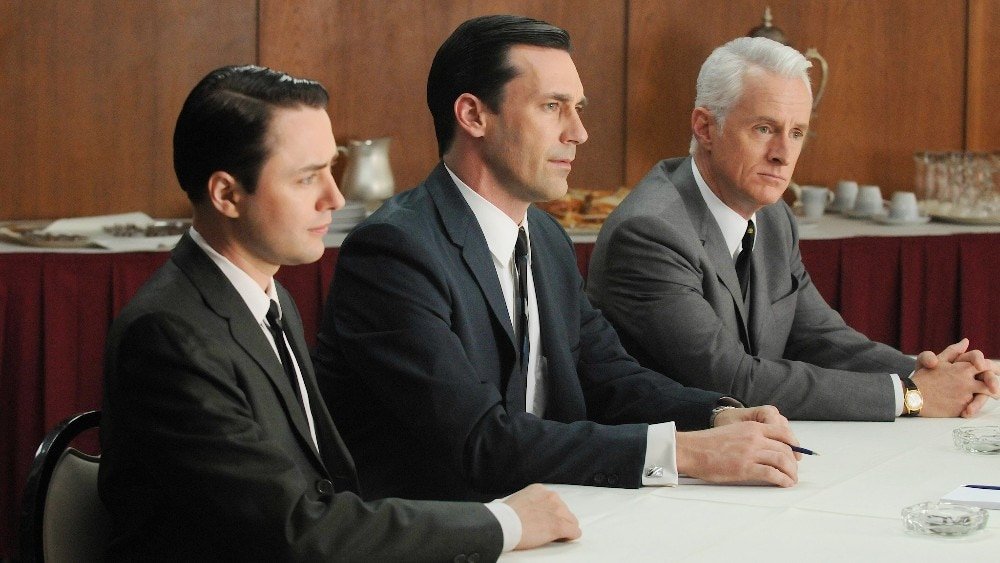
Let’s take a step back in time for a glimpse into the world of advertising and the lives of the people working in a Madison Avenue ad agency during the 1960s.
The show captures the essence of a changing America. It delves into the professional and personal challenges faced by the characters as they navigate the demands of the advertising world, as well as their own desires, secrets, and insecurities.
The plot revolves around the enigmatic Don Draper, a creative director who embodies the anti-heroic qualities of the show.
Don’s actions often blur the lines between right and wrong as he grapples with personal demons, infidelity, and ethical dilemmas. His charisma and complexity contribute to his portrayal as a central anti-hero figure.
Mad Men is celebrated for its nuanced character development and its exploration of the human condition, and the characters’ choices often challenge conventional morality, blurring the lines between right and wrong.
House, Fox (2004 – 2012)

The anti-hero to beat all anti-heroes, Dr Gregory House is the epitome of moral ambiguity cloaked in a swatch of sarcasm, belying a brilliant mind that you can’t help but be in awe of.
The plot follows Dr. House and his team of doctors as they tackle complex medical cases that have stumped other physicians.
Dr. House’s unorthodox methods and relentless pursuit of the truth often lead him to question traditional medical practices and challenge the status quo.
Set within the walls of Princeton-Plainsboro Teaching Hospital, the series captures the intensity of the medical profession and the intricate relationships among the hospital staff.
The show delves into Dr. House’s personal struggles, including his chronic pain, addictions, and strained interactions with his colleagues.
Killing Eve, BBC America (2018 – 2022)

Killing Eve is a riveting TV series that revolves around the cat-and-mouse game between two complex and enigmatic women: the skilled MI6 agent Eve Polastri and the charming but ruthless assassin Villanelle.
The plot follows Eve’s pursuit of Villanelle, an assassin with a penchant for creative and calculated kills. As Eve becomes increasingly obsessed with capturing Villanelle, their dynamic evolves into a twisted and intricate relationship that blurs the lines between heroism and obsession.
Set against the backdrop of a shadowy world of intelligence agencies and international intrigue, the series explores the motivations and vulnerabilities of both characters. T
he show is praised for its intricate character dynamics and exploration of obsession and identity, and it challenges traditional notions of heroism, as both Eve and Villanelle grapple with their own desires, flaws, and moral ambiguities.
Fargo, FX (2014 – Present)

Inspired by the film of the same name, Fargo investigates the concepts of crime and morality in the American Midwest, with each season showcasing a new interconnected story.
At the heart of the show, we find the theme of anti-heroes as these morally ambiguous but loveable characters take center stage.
From Lester Nygaard’s transformation from a timid insurance salesman to a cunning murderer to Lorne Malvo’s manipulative and violent tendencies, Fargo introduces viewers to characters who navigate ethical grey areas.
These anti-heroes often make choices that challenge their own values, blurring the lines between right and wrong.
The show is renowned for its dark humor and intricate narratives, where seemingly ordinary people are pushed to their limits by extraordinary circumstances.
Deadwood, HBO (2004 – 2006)
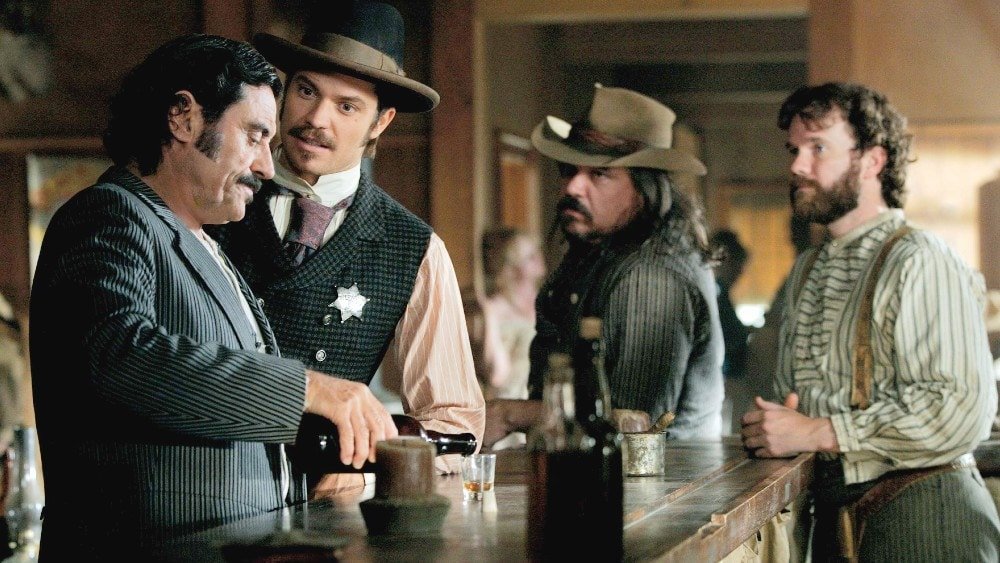
Let’s make a stop at the lawless and gritty town of Deadwood, South Dakota, during the late 19th century to investigate the lives of its diverse inhabitants, highlighting their struggles for power, survival, and the pursuit of personal gain.
For example, we can’t help but be intrigued by the ruthless Al Swearengen, the cunning owner of the Gem Saloon. Al’s criminal activities and manipulative behavior are juxtaposed with moments of unexpected empathy and loyalty, making him a complex anti-hero.
Set against the backdrop of the American frontier, this Western series delves into the idea of lawlessness, greed, and the challenges of establishing order in a town where the line between hero and villain is often blurred.
The town’s inhabitants, from lawmen to criminals, struggle with their own ambitions, flaws, and moral grey areas. Their actions often defy traditional notions of heroism as they navigate a world where survival can require tough choices.
Boardwalk Empire, HBO (2010 – 2014)

Staying with the theme of lawlessness, we head to the Prohibition era in Atlantic City, New Jersey, to follow the life and times of political figure Enoch Nucky Thompson as he navigates the worlds of politics, organized crime, and business.
Nucky is a complex character who wields power as both a political leader and a key player in the illegal alcohol trade. His actions are often driven by personal gain and a desire for control, blurring the lines between moral and ethically questionable behavior.
Set against the backdrop of the 1920s, the series captures the glitz and glamour of the era alongside the darker underbelly of corruption, crime, and violence.
As Nucky navigates the treacherous waters of power and influence, the show delves into the complexities of his relationships with both allies and adversaries.
Ray Donovan, Showtime (2013 – 2020)

Meet Ray Donovan, a professional fixer and problem solver for the wealthy and powerful in Los Angeles. While excelling at his job, he still grapples with his personal life and moral failings.
Set against the backdrop of Hollywood and the world of the elite, the series explores themes of family, loyalty, and the consequences of one’s choices.
Ray’s complex relationships with his family and clients shed light on his internal struggles and the emotional toll of his work.
Ray’s choices come with consequences that mess with his relationships and his own peace of mind.
With its mix of characters and exploring what it means to protect others, the show dives into Ray’s complex world and makes you think about what a good guy really looks like.
Californication, Showtime (2007 – 2014)

This wild show follows Hank Moody, a writer living life in the fast lane in sunny Los Angeles.
Hank’s definitely not your classic hero – he’s a witty and self-destructive character known for his drinking, womanizing, and general disregard for convention. Despite his flaws, he’s a charismatic and talented writer, which keeps the viewers hooked.
Set in the vibrant world of LA’s entertainment industry, the series explores Hank’s misadventures, his relationships with women, and his rocky journey to find his place in the world.
The show doesn’t shy away from the messy parts of life, including Hank’s battles with addiction and the consequences of his choices.
Californication thrives on its exploration of the highs and lows of Hank’s life. His choices often lead to messy situations and questionable decisions.
The show takes you on a journey through Hank’s flaws, making you ponder the true nature of morality in a world where self-destruction and personal demons play a major role.